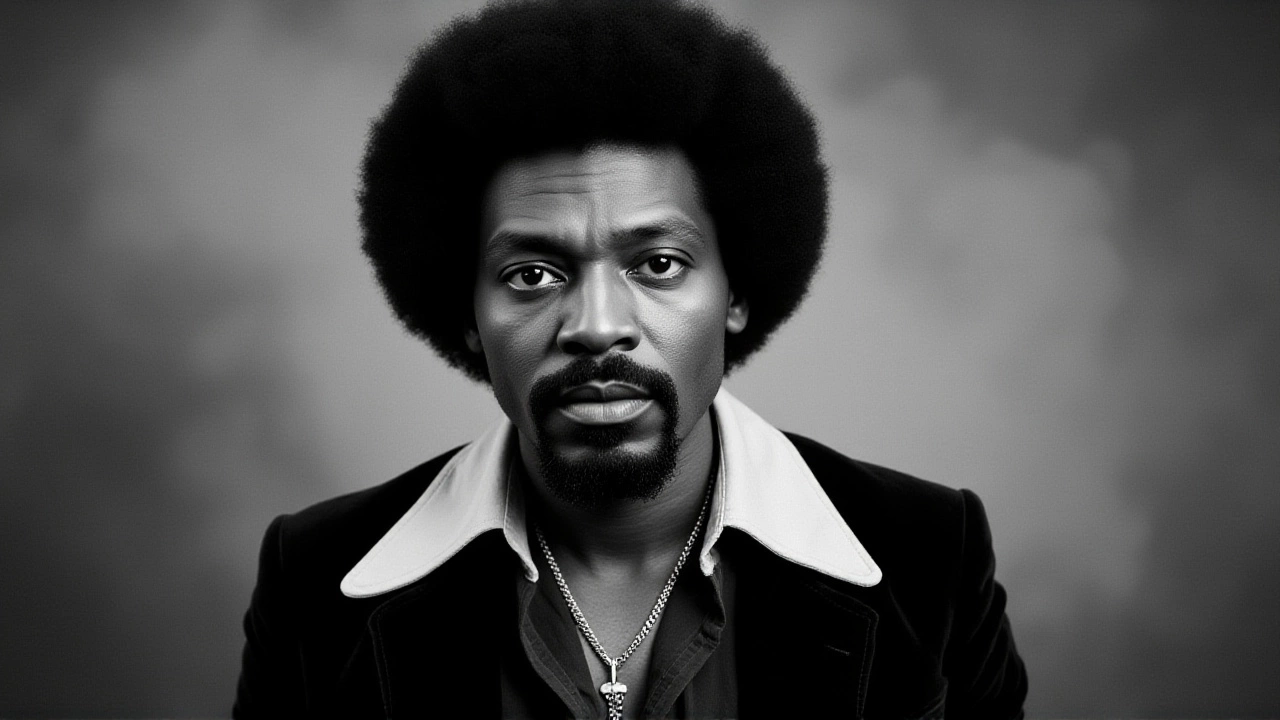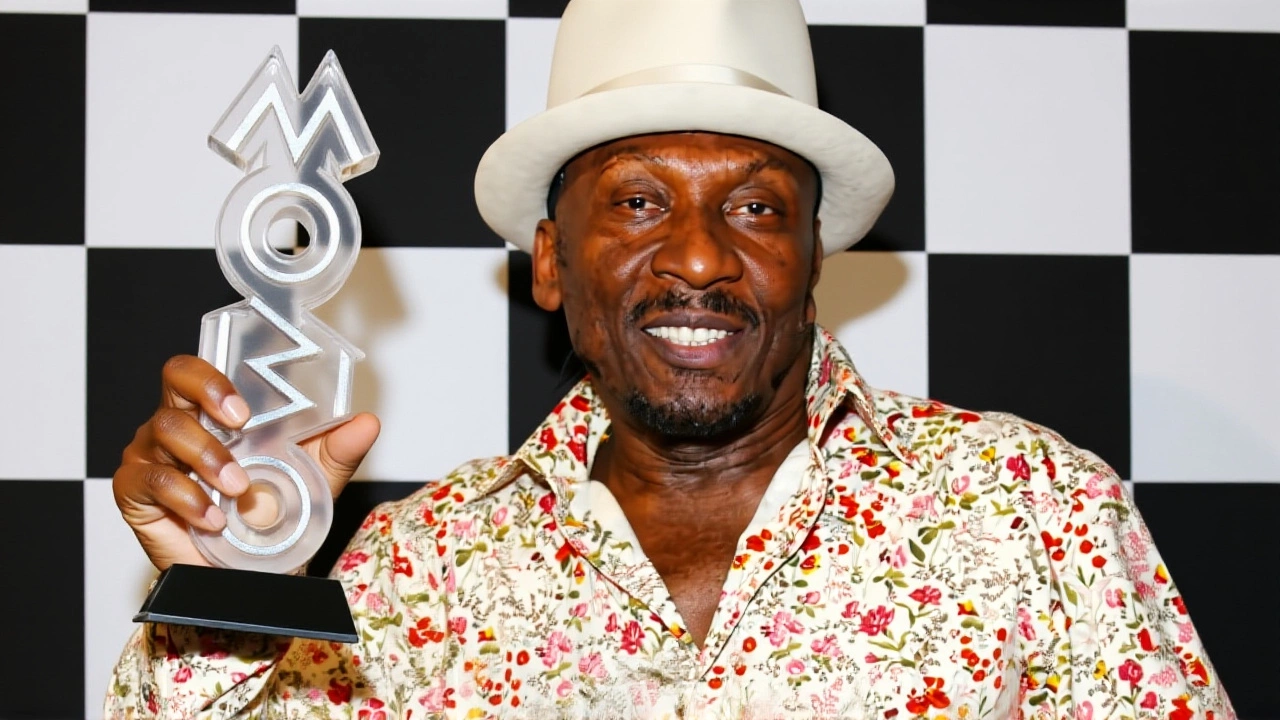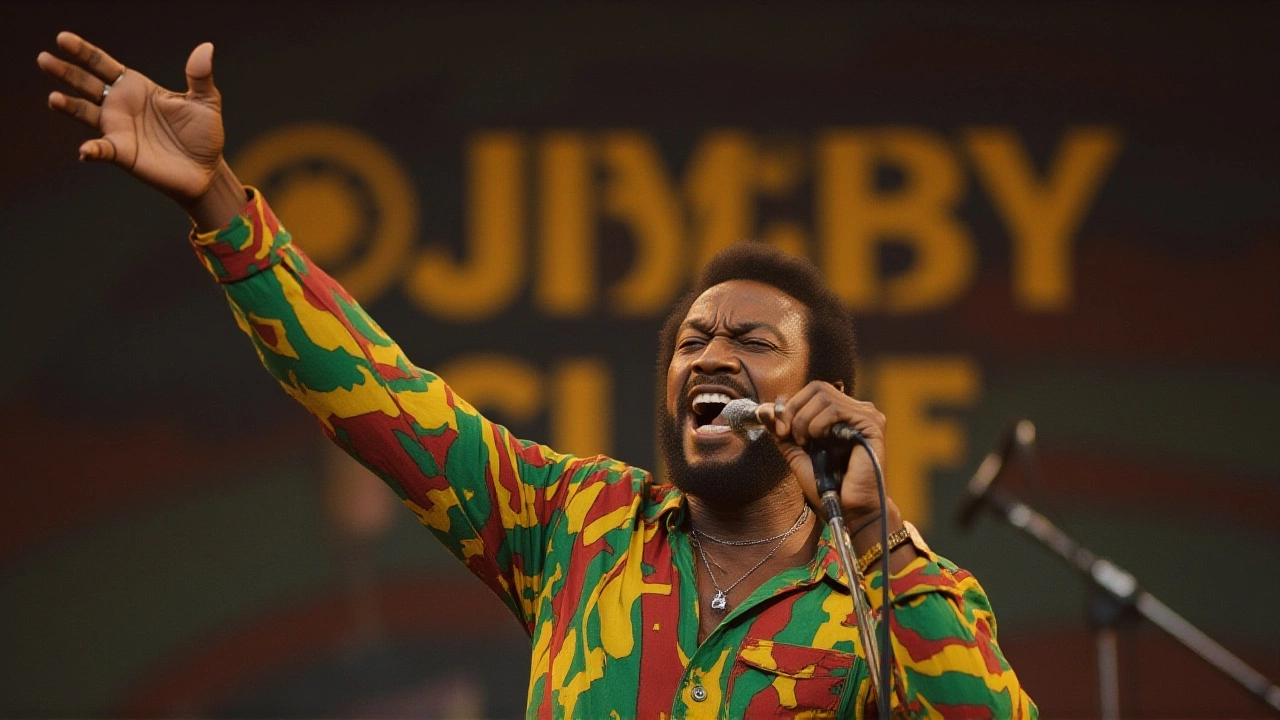Jimmy Cliff, the voice that carried reggae from Kingston’s backstreets to the world’s biggest stages, died at 81, his wife Latifa Chambers confirmed in a quiet Facebook post on November 24, 2025. The Jamaican icon, born James Chambers in St. James Parish in 1948, passed after a seizure and subsequent pneumonia—though the exact date and location remain private, as the family has requested. His death marks the end of a six-decade career that didn’t just popularize reggae—it defined it for generations who never set foot in Jamaica.
The Sound That Changed the World
Cliff didn’t just sing reggae; he became its ambassador. His 1972 role as Ivan Martin in The Harder They Come wasn’t just acting—it was cultural transmission. The film’s soundtrack, packed with his own songs like the haunting “Many Rivers to Cross” and the uplifting “You Can Get It If You Really Want”, became the first reggae album many outside Jamaica ever heard. Suddenly, the rhythms of ska and rocksteady weren’t just local sounds—they were global anthems. As CP24 noted, Cliff, alongside Bob Marley, was one of the two figures who made the world listen.
His voice carried weight. Not the kind that shouts, but the kind that lingers. You could hear the struggle in “Many Rivers to Cross”, the hope in “You Can Get It If You Really Want”. He sang like a man who’d walked every mile he described. And he didn’t need fancy studios. He started singing in church at six, then moved to Kingston as a teen, changing his name to “Cliff” because he wanted to reach the heights.
From Film to Fame: A Career That Refused to Fade
Even as the 1980s and ’90s rolled in, Cliff didn’t fade. He adapted. In 1993, he covered Johnny Nash’s “I Can See Clearly Now” for the Cool Runnings soundtrack. It climbed to No. 18 on the Billboard Hot 100—introducing him to a whole new generation who knew him from a movie about Jamaican bobsledders, not reggae revolutionaries. That’s the magic of Cliff: he made the specific feel universal.
His accolades tell part of the story. Two Grammy wins: Cliff Hanger in 1985, Rebirth in 2013. Seven nominations total. Induction into the Rock and Roll Hall of Fame in 2010. But numbers don’t capture what he did. He gave Caribbean music a language the world understood without translation.

Legacy Beyond the Notes
What made Cliff different from other stars? He never stopped being Jamaican. Even as he played Madison Square Garden or toured Europe, his music carried the cadence of Kingston’s streets, the weight of colonial history, the resilience of a people who turned pain into poetry. As American Blues Scene put it, his work “crafted the way Caribbean music could convey universal experiences while retaining its distinct cultural voice.”
He influenced artists across genres—Bob Marley, of course, but also Sting, Bruce Springsteen, and even modern reggaeton producers. His voice was a bridge: between cultures, between generations, between struggle and salvation. When he sang “Many Rivers to Cross”, you didn’t just hear a song—you felt the journey.
Family, Privacy, and the Silence After the Music
Cliff is survived by his wife, Latifa Chambers, and their two children, Lilty and Aken. Her Facebook post, shared on November 24, 2025, ended with a quiet plea: “Respect the family’s privacy during this difficult time.” No funeral details. No public memorial. No grand televised tribute planned—as of November 25, 2025, the family’s wish was clear.
It’s fitting. Cliff never needed the spotlight to matter. He mattered because he spoke truth in melody. Even in death, he’s asking for silence—not out of secrecy, but out of dignity.

Why This Matters Now
Reggae isn’t just music anymore—it’s a global movement, a spiritual and political force. From London to Lagos, from Berlin to Brooklyn, people still sing Cliff’s songs at protests, in churches, at weddings. His music survived because it was never just entertainment. It was testimony.
Today, as streaming algorithms try to reduce culture to hashtags and playlists, Cliff’s legacy reminds us that real art doesn’t trend—it endures. He didn’t chase trends. He built foundations. And those foundations still hold.
Frequently Asked Questions
How did Jimmy Cliff help bring reggae to the world?
Cliff’s 1972 film The Harder They Come and its soundtrack were the first major global introductions to reggae music. His performances of songs like “Many Rivers to Cross” and “You Can Get It If You Really Want” reached audiences unfamiliar with Jamaican culture, turning local rhythms into international anthems. Before streaming, before social media, this film was the breakthrough.
What was Jimmy Cliff’s relationship with Bob Marley?
Cliff and Marley were contemporaries who helped pioneer reggae’s global rise, often mentioned together as twin pillars of the genre. While Marley became the most famous face of reggae, Cliff was the first to break through internationally with film and mainstream success. They shared mutual respect but pursued different paths—Cliff through acting and crossover appeal, Marley through political messaging and Rastafarian identity.
Why did Jimmy Cliff change his name from James Chambers?
He adopted the stage name “Cliff” as a symbolic gesture—representing the heights he aspired to reach. It was a declaration of ambition. At 16, moving from rural St. James Parish to Kingston’s bustling music scene, he needed a name that sounded bigger than his origins. The name stuck, becoming synonymous with reggae’s global ascent.
What impact did his performance in Cool Runnings have on his career?
His 1993 cover of “I Can See Clearly Now” for the Cool Runnings soundtrack reintroduced Cliff to a younger, mainstream audience. The song hit No. 18 on the Billboard Hot 100, proving his voice still resonated decades after his 1960s debut. It wasn’t a comeback—it was a reclamation, showing that reggae’s message could thrive even in Hollywood comedies.
Why hasn’t a public memorial been announced yet?
The family, led by his wife Latifa Chambers, has explicitly asked for privacy following his death. This aligns with Cliff’s lifelong humility—he never sought grand gestures. Public tributes may come later, possibly from institutions like the Rock and Roll Hall of Fame or Jamaica’s national honors, but for now, the focus remains on personal mourning.
What makes Jimmy Cliff’s music timeless?
His lyrics spoke to universal human struggles—resilience, faith, loss, hope—with a rhythmic warmth that transcends language. Unlike many artists tied to a moment, Cliff’s songs work in churches, protests, and car rides alike. His voice carried the weight of history without being heavy-handed, making his music feel both deeply personal and broadly shared.
